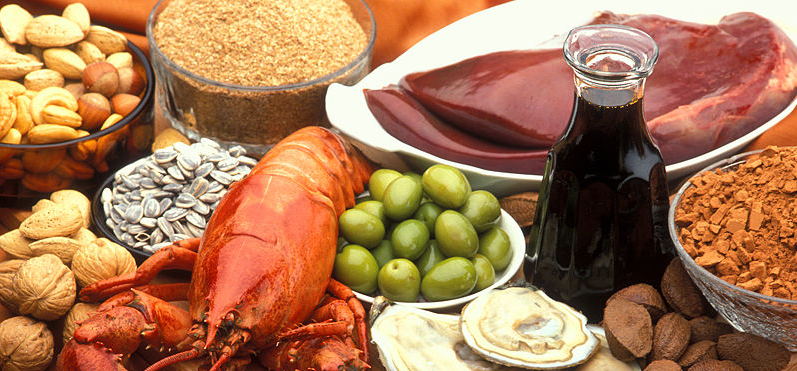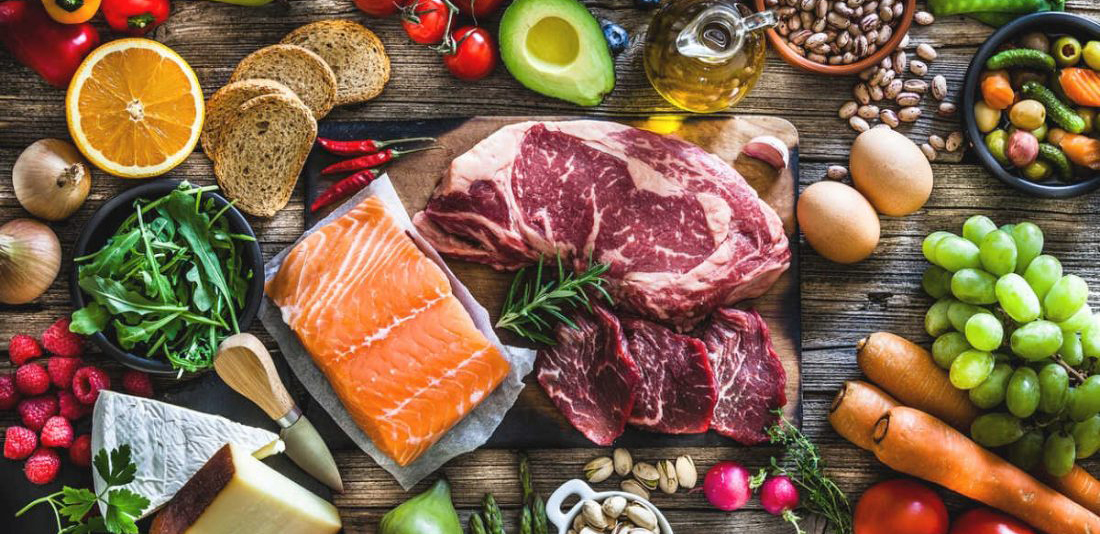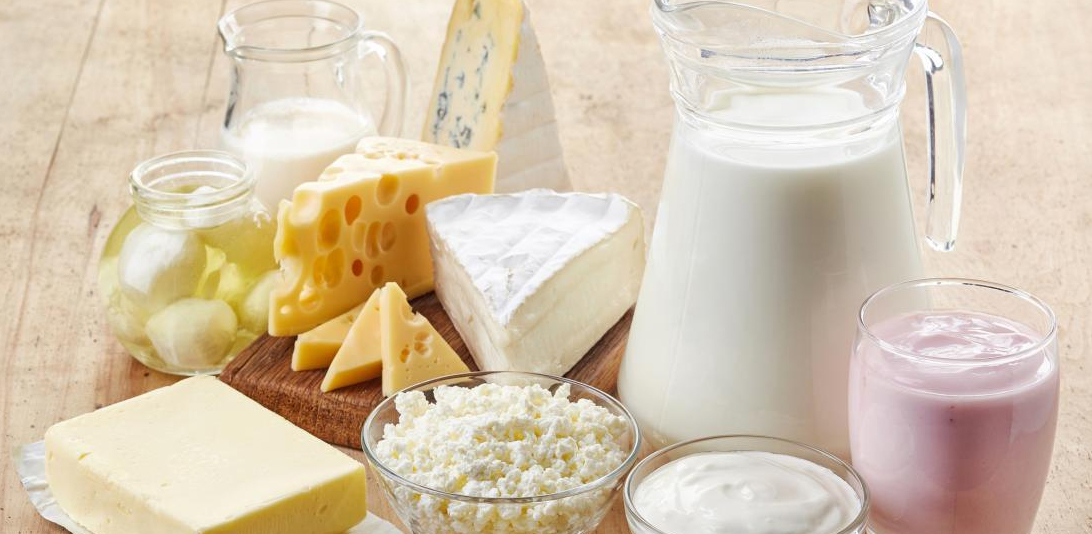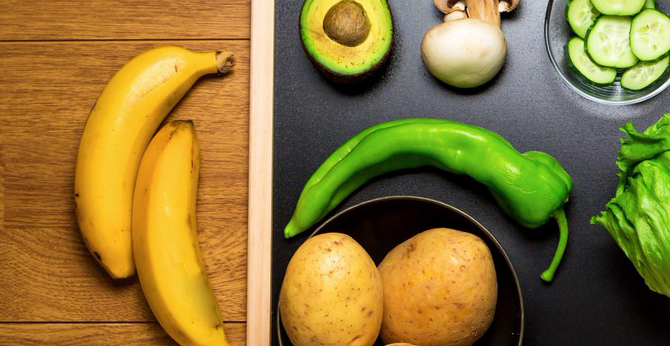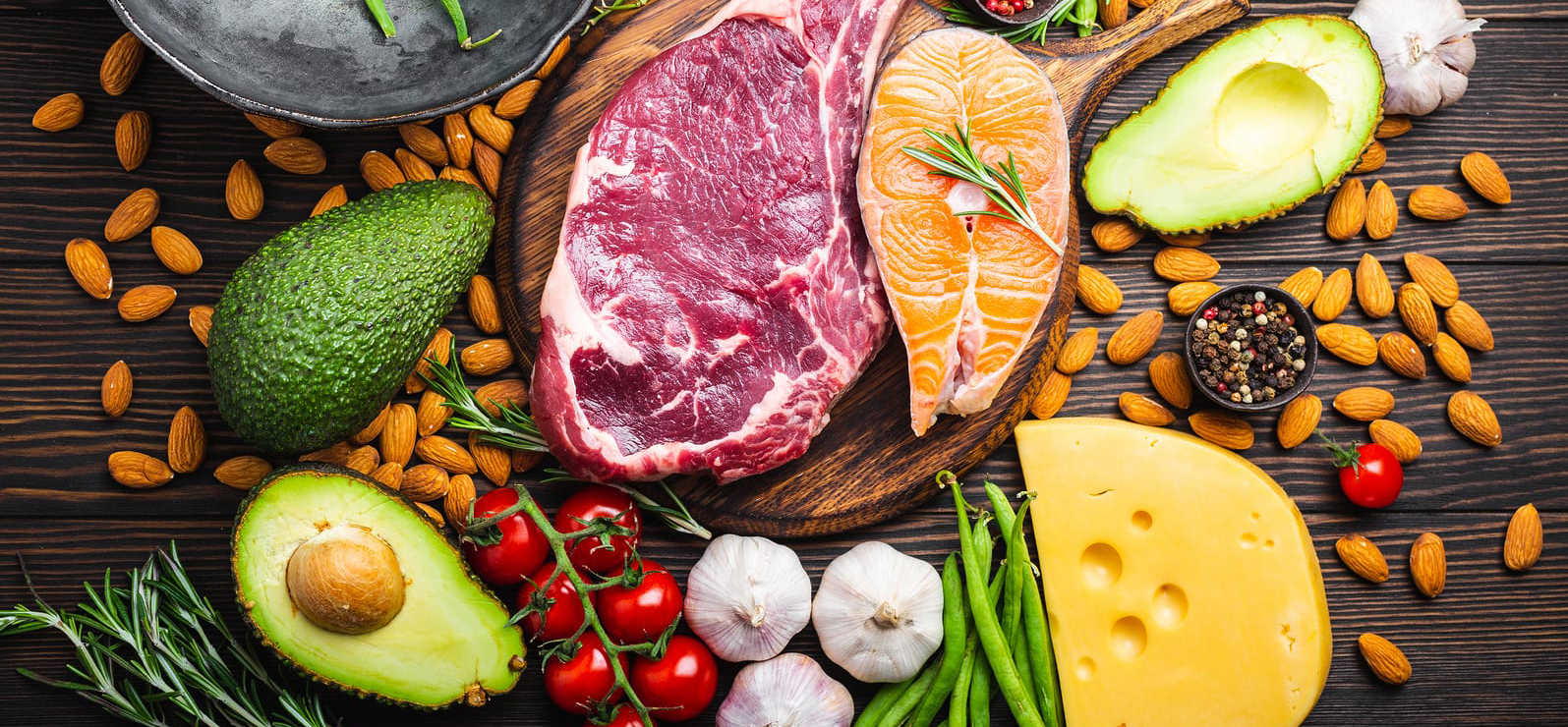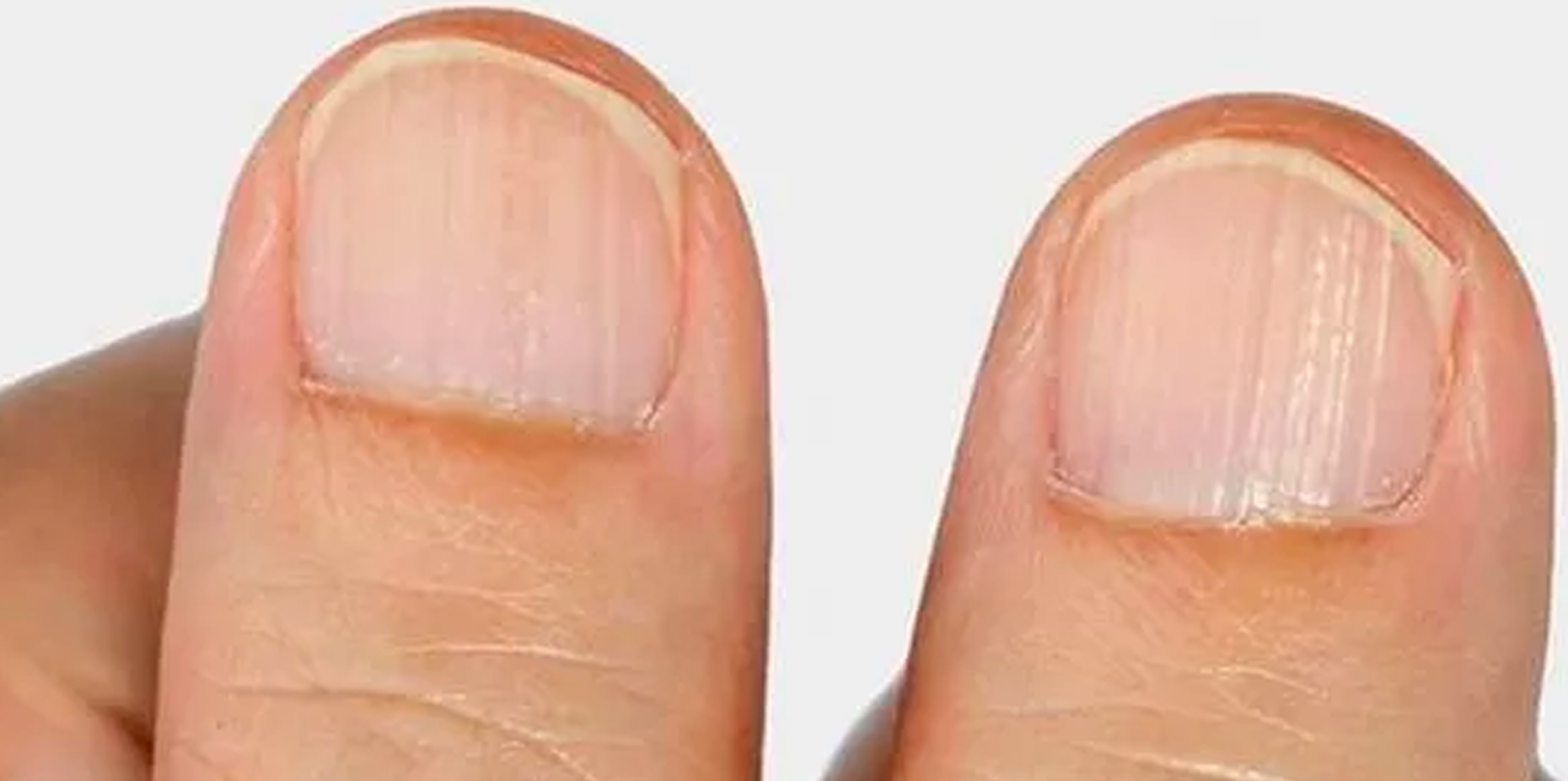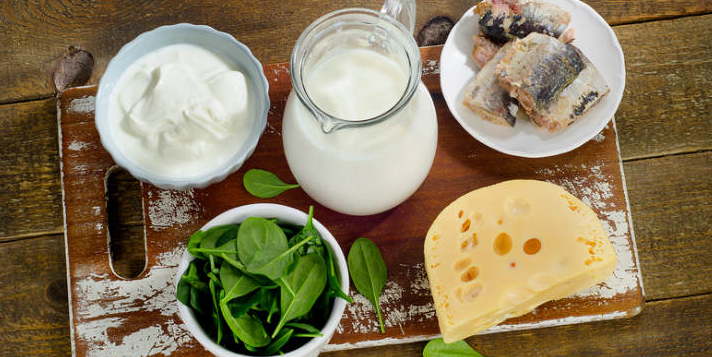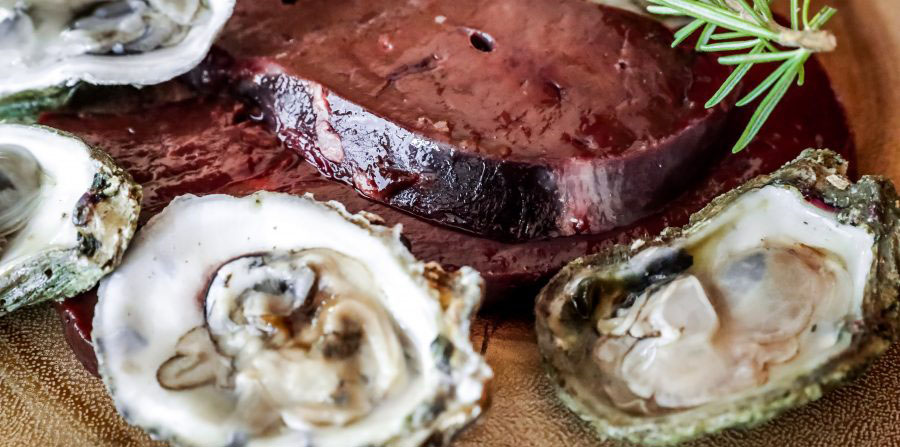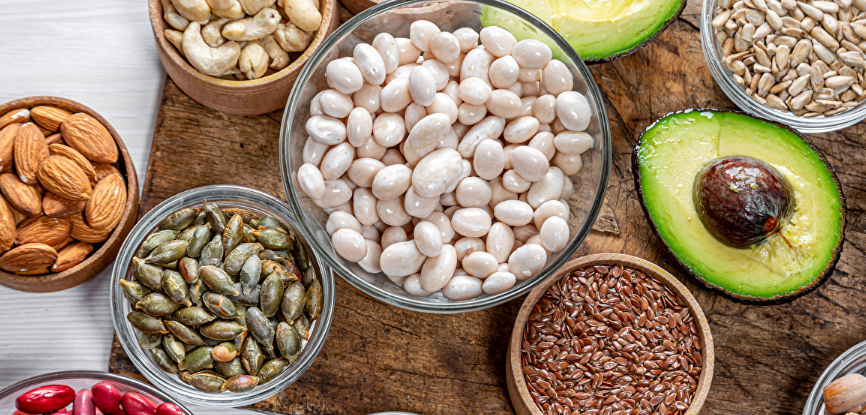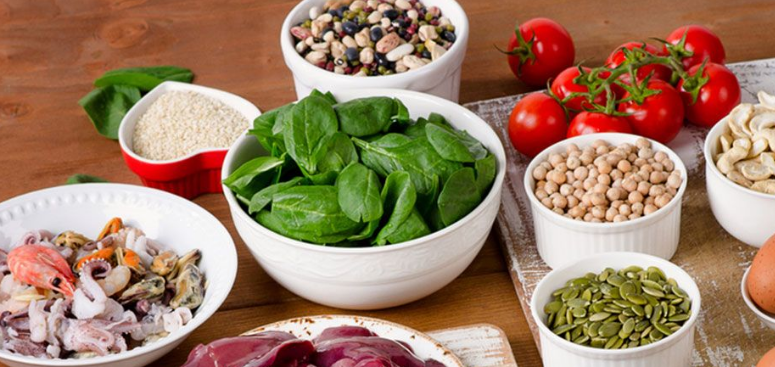Zinc is an essential mineral needed for over 300 enzyme reactions in the body including skin health, immunity, protein synthesis, wound healing and much more (1, 2, 3). Zinc plays an important role in making sure the body’s immune system stays healthy and strong. It helps the immune system right off invading bacteria and viruses, protecting cells in the body (4). It’s also vital to keep skin free from acne, rashes, eczema, and more (5). Zinc plays a critical role in many aspects of dermatology (6). Wound healing is another important aspect of zinc in the body (7), as well as the body’s ability to taste and smell (8).
It even plays a role in producing sex hormones, such as testosterone and prolactin (9). There’s evidence that male sex hormones function better with zinc supplementation (10). Zinc helps to maintain regular digestion and repair cells throughout the body (11). There’s mounting evidence that this essential mineral is a promising factor in dietary chemoprevention of cancer (12, 13). This is partly because zinc has potent anti-inflammatory properties that make it a powerful therapy for cancer therapy and heart disease (14, 15). Proper nutrition is vital to continue the path of wellness, and zinc is an essential part of that.
The recommended daily allowance of zinc is 8 milligrams a day for women and 11 milligrams per day for men. Vegans and vegetarians and often at a higher risk of zinc deficiency because most foods high in zinc are animal-based products (16). Although some plant-based foods contain zinc, the best chance of zinc absorption is through animal-based foods. This is because plant-based foods have other nutrients so that becomes harder to absorb zinc (17).
Summary: Zinc is an essential mineral. It is needed for over 300 enzyme reactions in the body to promote healthy skin, immunity, protein synthesis, wound healing, and combat inflammation. 8 milligrams per day is recommended for women and 11 milligrams for men. Vegans and vegetarians are at risk for deficiency because animal-based products are high in zinc.
Table of Contents
Foods High in zinc
It’s important to get small amounts of zinc each day in your food or through supplementation. Zinc should never be taken at more than 40 milligrams a day because that could lead to severe side effects. At the same time, too little zinc could lead to serious health decline, too. Check out the list below to see what foods are high in zinc and see what you could add to your routine.
1. Oysters
Oysters are one of the highest sources of zinc out there (18). Six oysters provide 291% of the daily recommended allowance of zinc, 32 milligrams. Oysters are also packed with an essential B vitamin, vitamin B12, which is necessary for energy production (19, 20). They also contain a ton of vitamin C, iron, and selenium (21). Because of their rich vitamin and mineral properties, oysters are excellent for promoting heart health (22).
You may think you need to spend a lot of money to enjoy the taste and nutrition of oysters, but that doesn’t have to be the case. While fresh oysters at restaurants usually are expensive, that’s not the only way to eat them. Oysters come canned and soaked in olive oil, too. They’re great to mix in pasta, salads, and even to eat plain. Most canned oysters come smoked so some even like to eat them plain. There are so many recipe options with garlic, olive oil, tomatoes, cucumbers, and canned oysters.
Summary: Oysters contain 32 milligrams, or 291% of the daily recommended allowance of zinc, one of the highest sources out there. They are also high in vitamin B12, C, iron, and selenium. They are a heart-healthy and energy boosting food source. You can find them canned or fresh and mix them with pasta, salads, or eaten plain.
2. Crab and Lobster
While oysters are the highest source of zinc, these other shellfish are also beneficial sources of zinc (23). Crab and lobster both pack a punch of heart-healthy zinc. Three ounces of crab contains 6.5 milligrams of zinc. Lobster has a bit less at 3.5 milligrams. Even though crab and lobster contain a lot less zinc than oysters, they’re beneficial sources of zinc. These types of shellfish can be included as part of a healthy diet. These shellfish also contain essential B vitamins, omega-3 fatty acids, protein, and more (24, 25).
Many might think that lobster and crab are more unhealthy food because of how they’re cooked and served. For example, when you think of lobster, maybe you think of lobster rolls or surf and turf. Many shellfish like these are served with heavy meals including carbohydrate-heavy foods that aren’t always healthy. However, you can avoid this by making sure you follow healthy portion sizes.
Summary: Eating lobster and crab in healthy portion sizes can help boost zinc intake. 3 ounces of crab contains 6.5 milligrams of zinc, lobster has 3.5 milligrams. These shellfish are also rich in B vitamins, omega-3 fatty acids, and protein.
3. Beef, pork, and lamb
Beef, pork, and lamb are the next foods highest in zinc (26). Beef contains about 5 milligrams per 3 ounces, while pork has almost 3 milligrams for the same serving size. Lamb has 2.9 milligrams of zinc in 3 ounces. The healthiest source of these foods is the grass-fed options without antibiotics and hormones. Excess hormones and food additives in meat can contribute to weight gain (27). These types of meat are best to eat alongside fruits and vegetables for the most health benefits. Makes sure your portion sizes are no bigger than the palm of your hand to make sure you don’t eat too much.
Another tip to think about when eating is to treat meat as a condiment instead of the main part of the dish. Meat is full of beneficial amino acids, protein, zinc, selenium, and more (28), so you don’t need that much of it to get the nutrition your body craves. Keep in mind that meals like surf and turf that contain both large portions of meat and shellfish are often not necessary. Have a little of each or choose your favorite instead, alongside your favorite vegetable.
Summary: Beef, pork, and lamb are also packed with zinc. 3 ounces of beef contains 5 milligrams, pork 3 milligrams, and lamb 2.9 milligrams of zinc. Eating these foods in proper portions, about the size of your palm, alongside vegetables, fruit, and whole grains, is highly beneficial to meet zinc requirements. Just one serving not only contains zinc, but amino acids, protein, and selenium as well.
4. Baked Beans
Just ½ cup of plain canned baked beans contains 2.9 milligrams of zinc. Baked beans are a staple food in the United Kingdom, often served at breakfast with eggs and meat. They’re also popular at cookouts across America. You might wonder if they’re considered a healthy food, because of how they’re seasoned and even known as comfort food by many. The good news is, they are healthy. Baked beans are not only filled with zinc, but they’re also high in fiber, magnesium, iron, potassium, selenium, copper, thiamine, and vitamin B6 (29, 30).
Baked beans are usually prepared with several herbs and spices, molasses, tomato sauce, vinegar, mustard, and even sugar. Depending on how it’s cooked, you can make baked beans as healthy as you’d like. Molasses is also a great food for vegetarians to consider as it’s extremely high in iron. Enjoy baked beans for their powerful nutrient properties the next time you’re out or try to make you own soon.
Summary: Baked beans are highly nutritious. In just 1/2 cup of plain canned baked beans, there is 2.9 milligrams of zinc. This popular dish is also packed with fiber, magnesium, iron, potassium, selenium, copper, thiamine, and vitamin B6. Make your own using herbs and spices, molasses, tomato sauce, vinegar, mustard, and a little sugar.
5. Chicken and Turkey
The dark meat of chicken and turkey holds the most zinc (18, 31), compared to white chicken breast, for example. Dark meat chicken has 2.4 milligrams of zinc in just 3 ounces, and turkey has 1 milligram in 3 ounces. A white meat chicken breast also contains zinc (32), at 0.9 milligrams in 3 ounces. Chicken and turkey are healthy lean meat that can be consumed regularly depending on the individual’s dietary concerns and preferences. Both chicken and turkey have all nine essential amino acids, and they’re an excellent source of B vitamins and protein (33, 34).
They both contain a lot of tryptophan as well, which is necessary for optimal hormone production in the body (35). Tryptophan is an essential amino acid (36), needed for many important functions. If you feel like you’re low in zinc, chicken and turkey are a great and easy way to get a healthy dose most days.
Summary: Chicken and turkey are both rich in zinc. Dark meat of chicken and turkey contain the most zinc compared to white. In 3 ounces, dark meat chicken has 2.4 milligrams, turkey has 1 milligram, and white chicken meat has 0.9 milligrams. They are also rich in all nine essential amino acids, B vitamins, and protein.
6. Pumpkin Seeds
Only one ounce of pumpkin seeds contains 20% of the daily recommended allowance at 2.2 milligrams. Pumpkin seeds are a healthy, easy way to add more nutrition to your diet. They’re extremely high in magnesium (37), making them an excellent choice to protect heart health. Zinc and magnesium are only the beginning too. Pumpkin seeds are super high in fiber, healthy fats, vitamin K, iron, copper, manganese, and phosphorus (38, 39).
Many studies point out that pumpkin seeds can even help to prevent the risk of cancer, heart disease, and improve bladder health (40, 41). Other studies show that they can improve blood sugar levels as well (42, 43). You can ground pumpkin seeds up for the same health benefits in a smoothie, or simply add them to your breakfast smoothie, yogurt, and more.
Summary: Pumpkin seeds are a nutritional powerhouse, containing 20% of the recommended allowance of zinc, in addition to magnesium, fiber, healthy fats, vitamin K, iron, copper, manganese, and phosphorus. This heart-healthy food may even prevent cancer and heart disease, and improve bladder health and blood sugar. They make a great snack or can be added to smoothies, yogurt, or salads.
7. Yogurt or Kefir
Yogurt is another front-runner for zinc. Just 8 ounces of yogurt contains 1.7 milligrams of zinc. It’s also a great source of probiotics, protein, and calcium (44, 45). Yogurt, and especially kefir, promote healthy gut bacteria, too (46). Kefir is a more fermented version of yogurt that’s often thinner, and it can be even used as drinkable yogurt. Kefir has tons of probiotics, so it can be very helpful if you’re taking antibiotics to help combat the good bacteria being killed off (47).
Healthy gut bacteria are important for many functions in the body. Over 70% of our immune system is in the gut (48), so it helps to promote a stronger immune system response, improve digestion, and much more. Zinc and probiotic foods are a healthy, tasty choice that anyone can incorporate into their daily routine. If you’re lactose intolerant or sensitive to dairy, there are coconut or plant-based yogurts with probiotics and fortified zinc, too.
Summary: Just 8 ounces of yogurt contains 1.7 milligrams of zinc, making it a front-runner for zinc-rich foods. It also contains probiotics, protein, and calcium. Yogurt, and its fermented version called Kefir, are very helpful for promoting gut health. Over 70% of our immune system is actually in the gut, so the combination of zinc and probiotics in yogurt makes it an extremely powerful immune-boosting food.
8. Cashews
One ounce of dry-roasted cashews contains 1.6 mg of zinc. Cashews are also packed with tons of beneficial vitamins and minerals. From vitamin E, K, and B6, to potassium, calcium, folate, magnesium, and healthy fats (49, 50), cashews are a great addition to a healthy diet. If you don’t have an allergy or aversion to nuts, they’re an excellent way to boost your nutrition.
Cashews are kidney-shaped nuts that can help prevent gallstones, support bone health, promote skin health, and even aid in weight loss (51, 52, 53). They’re also great mixed with water and nutritional yeast for a cheesy alternative to dairy.
Summary: In just one ounce of dry-roasted cashews, there is 1.6 milligrams of zinc. Cashews also contain vitamin E, K, B6, potassium, calcium, folate, magnesium, and healthy fats, making them a great addition to a healthy diet. They help prevent against gallstones, support healthy bones and skin, and help with weight loss.
9. Chickpeas
Chickpeas contain 1.3 milligrams of zinc in just ½ cup. Chickpeas are one of the best sources of plant-based protein, too (54). Chickpeas can help with digestion, weight management, and even prevent the rush of many chronic diseases (55, 56). They’re a potent nutritional powerhouse for vegans and vegetarians for that reason, too.
Chickpeas can be made into homemade hummus with just a few simple ingredients. All you’ll need is tahini, lemon, garlic, peppers, and of course, chickpeas. Mix all the ingredients in a blender and enjoy. You can add your favorites to the mix as well.
Summary: Chickpeas are a great zinc-rich food for everyone, especially vegans and vegetarians. They contain 1.3 milligrams of zinc in just 1/2 cup and aid in digestion, weight management, and preventing chronic diseases. They are the main ingredient in hummus, and are also tasty when added to salads, smoothies, or even roasted in the oven with olive oil and seasonings.
10. Oatmeal
Just one packet of oatmeal has 1.1 milligrams of zinc. And it comes in many types. You can buy it in the packet or a large bulk-sized bag of rolled or steel-cut oats. It even comes frozen and flavored for a quick and easy meal. Although oatmeal is a breakfast food, it can be enjoyed any time of the day.
Add some blueberries, coconut flags, almond butter, chia seeds, and your favorite milk for a hearty, tasty, and nutritious meal. Oatmeal is also an excellent source of protein and fiber (57). It helps to promote healthy digestion and can promote a stronger immune system, too (58). Be sure not to buy oatmeal with too much sugar, as that can take away from the health benefits. Try to flavor plain oatmeal yourself with healthy, naturally set ingredients.
Summary: Oatmeal is packed with zinc. It has 1.1 milligrams in just one packet. It is also full of fiber and protein, which helps to support healthy digestion and immune systems. You can find it in quick, rolled, or steel-cut forms. Oatmeal is traditionally a breakfast food, but makes for a great meal any time of day. Berries, nut butters, seeds, milk, and coconut make great toppings for oatmeal.
Conclusion
Zinc is a crucial mineral that the human body cannot produce on its own. It’s necessary to make sure you get adequate levels of zinc in your diet either through food or supplementation. Since a large majority of people may be deficient in zinc, it can’t hurt to ask your doctor for a test to check your levels. If you have any common zinc deficiency symptoms like acne, skin rashes, brittle nails, hair loss, frequent colds, altered taste or smell, diarrhea, or even depression, be sure to get your levels checked (59).
Make sure to get the dietary requirement of zinc per day in food if possible. Those that can be at risk of zinc deficiency usually eat a diet lacking necessary nutrition. Try out some of these foods in your diet today and take note of how you feel after.





